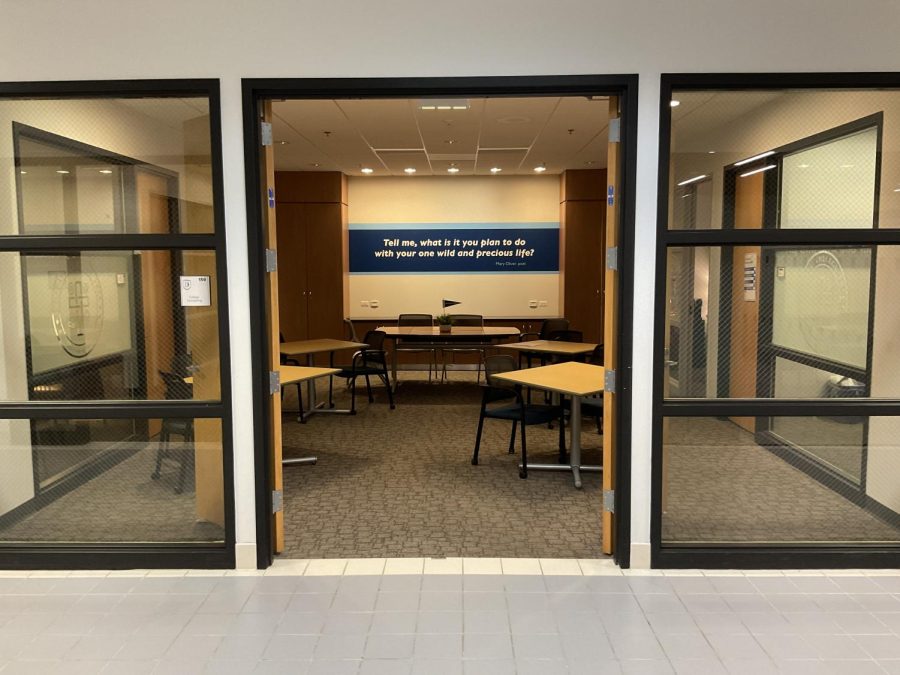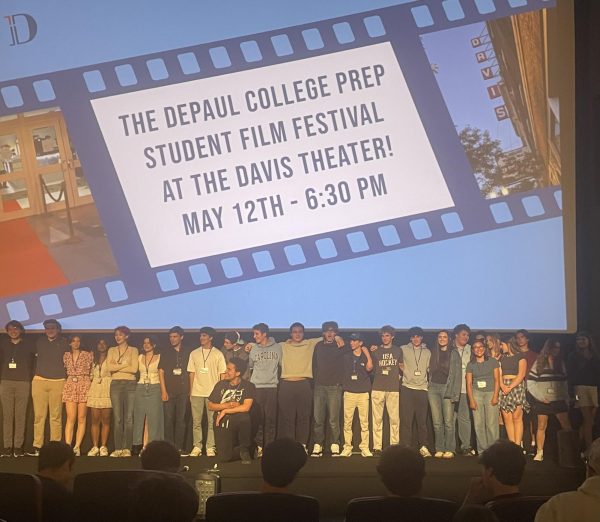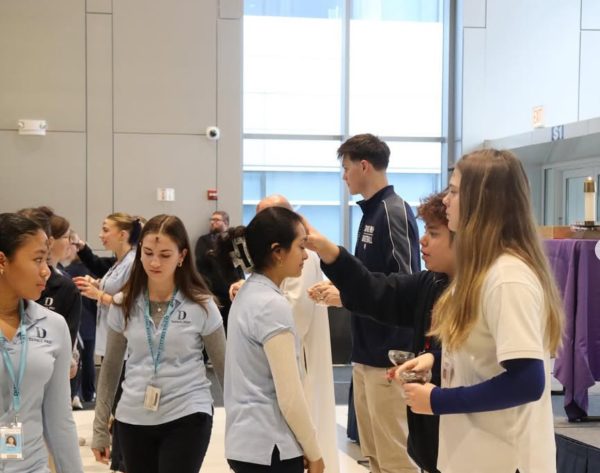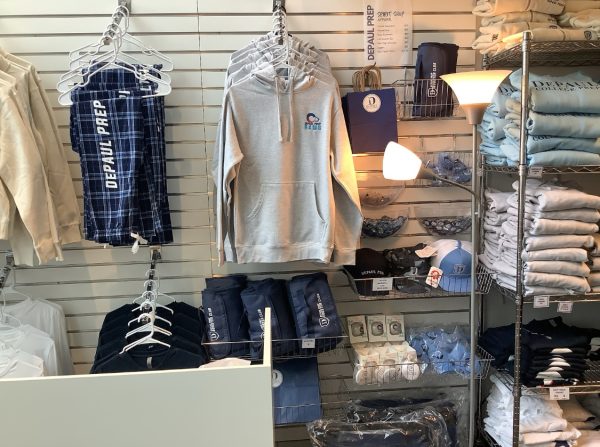“Be authentic”: College counselors aid DePaul Prep students with application process
At DePaul College Prep, it is a mission to provide a “rigorous college prep education” in order to prepare its students for their academic career after high school. Eventually, students will be using this education to help apply for college, which is a substantial subject that may seem scary, stressful, and confusing for most students.
Ellyn Weber, a senior at DePaul College Prep, agrees that the college application process can be a lot to manage and organize.
“I was pretty overwhelmed just because there’s a lot of steps and a lot of deadlines, and you’re worried that you’ll miss something.”
This common feeling that students share is why it is Tony Minestra’s job to simplify the college application process and make it understandable. He’s been the Director of College Counseling at DePaul College Prep for the past three years, and has been in the field of college counseling for a total of fifteen years.
“It covers a lot of ground. It’s nuts and bolts things like helping with application completion, essay development, the how of the application process, but there’s also the why; why am I applying? What schools am I looking at? What am I looking to find after high school?”
There are many ways Minestra gets involved with helping students prepare for college. Currently, he and his team are planning for the College Fair on March 13th, a big task that consumes the entire school. This event helps students familiarize themselves with colleges and allows them to explore different schools with different points of view, missions, structures, locations, etc. Additionally, individual family college conferences are hosted with juniors and their family members, and they get help on how to individually build a college plan for the student.
“It’s very easy to get wrapped up in the names and the brands and everything that’s out there, but unless you start from a place of confidence in yourself… you’re never gonna find your answer [on where to start regarding the application process].”
In order to find this confidence, Minestra encourages students to ask themselves:
What are you looking for? What talents do you have? What do you bring to the table? What do you want to get out of this experience?
This is one of many pieces of advice that he loves to give to students. He wants to make sure that students are not losing sleep over college applications, and he wants to eliminate any daunting misconceptions about it.
“What I think students don’t realize is that they have way more control than they think they do. When students hit submit [on their college applications], there’s this time that passes between when they’ve completed their work and when they hear back from the college, and there’s this nervousness that fills that space. What I really want kids to know is that they should feel confident.”
Simply, he wants to make students comfortable through the ups and downs of this process. He wants students to know that they’ve earned a position to have an amazing set of opportunities, and that colleges are far more interested in admitting students than denying students. In fact, the vast majority of colleges are looking for reasons to admit students as opposed to denying them, something that he thinks a lot of students believe is the other way around.
Worries like these often occur during the “high school” stage of life. DePaul College Prep senior Yadahris Rosario notes that initial speculations and talks about applying for college have a major impact on students.
“I think speaking on behalf of everybody, especially seniors, is [applying for college] something that everybody talks about. When you finally get to summer going into senior year, it kind of hits you that you should probably start starting the common app[lication] as well as the application information.”
Both Rosario and Weber agree that the essays are one of the most important parts of applying for college, and that this big task should be looked at early on.
“Start over the summer going into senior year” Weber says. “At least have an idea of what you want your essay to be about; look at topics, maybe have a rough draft, and definitely have a solid list and know a lot about every school you’re applying to.”
Of course, seniors and juniors are the ones that are closest to college, but some freshmen and sophomores may share the same anxious feeling. He says sophomores should maybe take a campus visit or two at most, but not get wrapped up in the process too early. It is about midway through junior year when students should start being serious. He recommends for students to use their junior year as a time to “research” themselves, asking questions such as “what are you looking for?” and “what is available to you?”
When you get to senior year, that’s when all of the “process driven things” happen, and where it feels like a series of steps are being taken. Between August and October of senior year is when most applications are being submitted; that includes transcripts, letters of recommendation, and endless forms. From November until February of senior year is when responses from schools start to roll in, and from February until May of your senior year, that’s decision making time. Students have all of their decisions back, and it is then when they can make a comfortable decision, typically by May 1st.
When creating applications, it is common for students to try to “bend themselves”, or change themselves, into different people in order to fit into what colleges are looking for. This is something he highly recommends staying away from.
“There’s 2800 colleges across the US, [and] you’re gonna find your way into the place you’re supposed to be, just by simply being yourself. Your essays should reflect who you are and your values, your course selection should represent things that you’re into.”
All this information may seem like a whole lot to take in, but at the end of the day, Minestra looks back to one main piece of advice.
“The number one bit of advice I would give to any student at any grade level would be to be authentic. Be honest and be yourself in the process. Colleges are truly looking for a student voice… and it’s important to know that it is your journey as a student and it should be driven by you.”
Being your authentic self, he says, is something that colleges are really drawn into when it comes to accepting applications.







Margaret Park • Feb 22, 2023 at 08:15
The article is very informative!